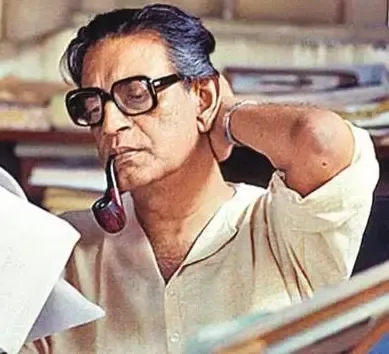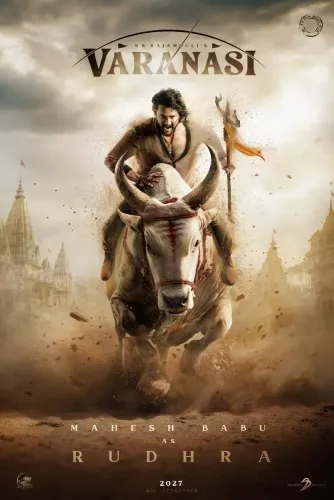Did Satyajit Ray Reveal How His Story Was Copied in Hollywood?

Synopsis
Key Takeaways
- Satyajit Ray highlighted issues of plagiarism in Hollywood.
- His work inspired generations of filmmakers.
- Ray's films are known for their humanism and emotional depth.
- He was a multifaceted artist, contributing to cinema in numerous ways.
- Ray’s legacy continues to influence the film industry.
Mumbai, Nov 15 (NationPress) Renowned director Satyajit Ray once shared his thoughts on how his original narrative was appropriated for the Hollywood blockbuster ‘E.T. the Extra-Terrestrial’.
A recently uncovered video features the esteemed filmmaker discussing the incident of plagiarism and detailing the events surrounding it.
He stated, “Long before ‘E.T.’, my science fiction screenplay was inspired by that story. I wrote a complete screenplay titled ‘The Alien’, which was intended to be financed by Columbia Pictures. This led me to spend five weeks in Hollywood for that purpose. Unfortunately, I had a middleman whose behavior was quite strange, and ultimately, the project was abandoned.”
Satyajit Ray is celebrated as one of India's greatest filmmakers and a monumental figure in global cinema. Born in Kolkata to a culturally rich family, he was immersed in literature, art, and music from a young age, experiences that significantly influenced his directorial style. Following his education at Visva-Bharati University and a stint in advertising, he discovered his true calling in cinema, drawing profound inspiration from Italian Neorealism, particularly from the film ‘Bicycle Thieves’.
His first film, ‘Pather Panchali’, marked a significant milestone in Indian cinema. Created on a minimal budget with non-professional actors, it introduced a naturalistic storytelling style and garnered international acclaim, including recognition at Cannes. This film was the inaugural part of the legendary ‘Apu Trilogy’, chronicling a Bengali boy’s transition from rural childhood to adulthood. Throughout his illustrious career, he directed over 30 films, including notable works like ‘Charulata’, ‘Mahanagar’, ‘Jalsaghar’, ‘Goopy Gyne Bagha Byne’, and ‘Shatranj ke Khilari’.
His cinematic contributions are characterized by a profound sense of humanism, emotional depth, and meticulous craftsmanship. In addition to directing, he was also a writer, illustrator, composer, and designer, responsible for everything from his film scores to poster art. In recognition of his impactful work, he received the Bharat Ratna and an Honorary Oscar in 1992. His films continue to resonate with audiences, serving as timeless examinations of human relationships and society.









